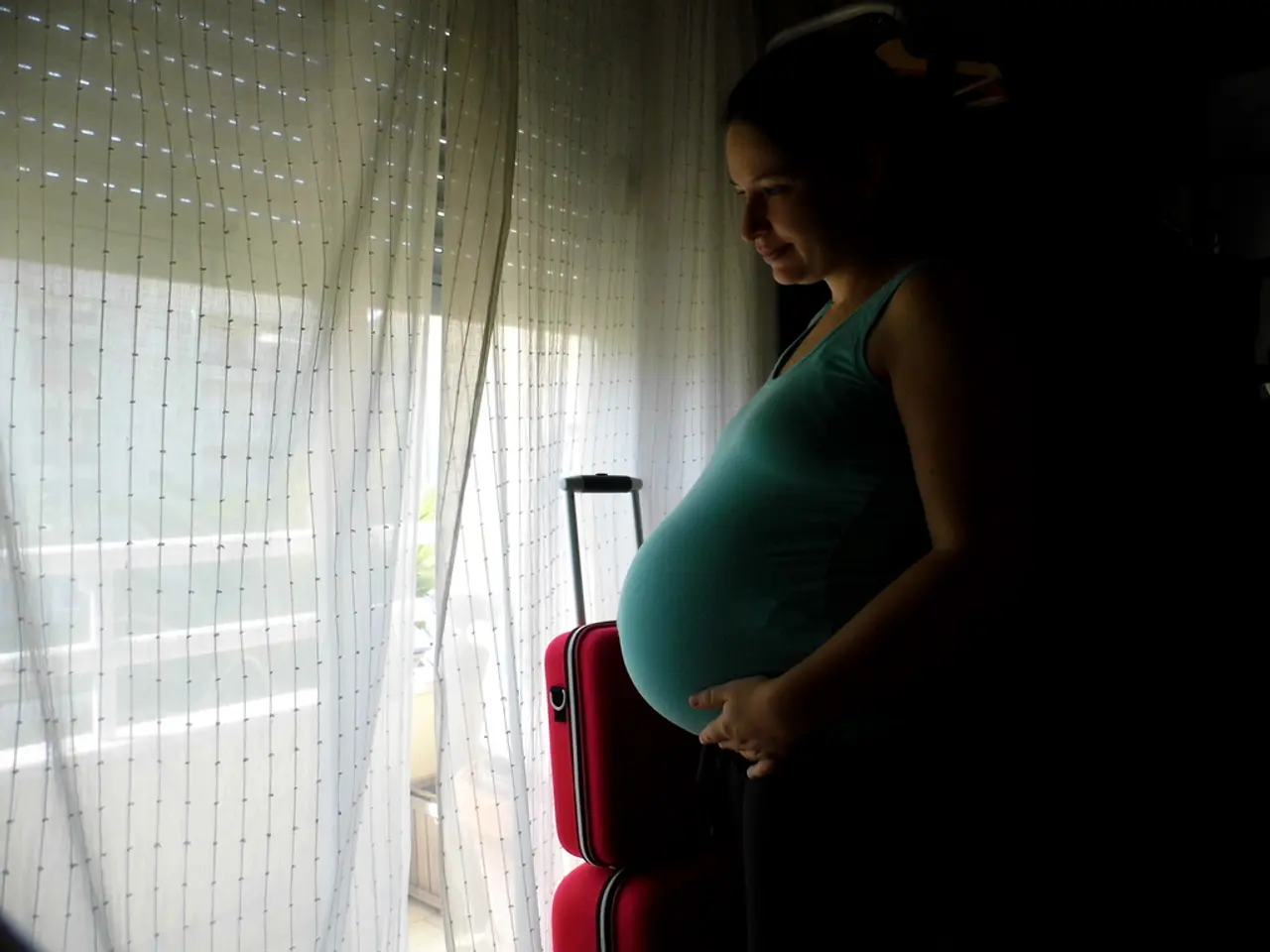Essential COVID-19 Coronavirus Guidelines for Pregnant Women Summarized
Pregnancy can be a time of joy and anticipation, but it can also come with its own set of concerns, especially during a global pandemic like COVID-19. Here's what expectant mothers need to know about staying safe during this challenging time.
Risk of Infection
According to the CDC, pregnant women and those who aren't pregnant are at the same risk of catching the Covid-19 coronavirus [1]. The virus spreads through human-to-human transmission, primarily through respiratory droplets released when an infected person sneezes or coughs [2]. It can also spread when someone touches a surface or an object infected by a person tested positive for the novel coronavirus.
Symptoms and Complications
The symptoms of COVID-19 during pregnancy can include cough, fever, shortness of breath, and other cold/flu-like symptoms [3]. Pregnant women may experience mild symptoms, leading to self-isolation at home, or severe symptoms that require hospitalization. Severe symptoms such as pneumonia and marked hypoxia can be observed in pregnant women, the elderly, and people with certain health conditions [4].
COVID-19 infection during pregnancy has been linked with a higher risk of severe illness, hospitalization, preterm birth, and stillbirth [5]. Pregnant women also have a weakened immune response, making them more susceptible to infections and increasing the risk of complications such as blood clots [6].
Breastfeeding and COVID-19
A mother who tests positive for COVID-19 can still breastfeed her baby, but she should ensure proper disinfection and baby safety measures [7]. There is no evidence that suggests a pregnant woman tested positive for COVID-19 infection can pass it to the unborn baby [8]. However, if a mother is unable to breastfeed or there are health risks involved, the baby may be given to family members or kept in a neonatal unit and formula-fed.
Vaccination
Major health organizations such as the American College of Obstetricians and Gynecologists and the Society for Maternal-Fetal Medicine strongly recommend COVID-19 vaccination for pregnant women [9]. Vaccination effectively prevents severe illness and provides protective antibodies to the baby, reducing the infant’s risk of COVID-related hospitalization in the first few months of life [10]. Studies show no safety concerns with vaccination around conception or early pregnancy [11].
Precautions for Pregnant Women
To protect against COVID-19, pregnant women should maintain good hygiene, eat healthily, strengthen their immune system, practice social distancing, and worry less [12]. Recommended precautions during the COVID-19 pandemic include minimizing contact with others outside the home, wearing masks, and frequent hand washing. These measures are particularly important in the last 2-4 weeks of pregnancy to reduce the risk of testing positive for COVID-19 at delivery [1].
In summary, pregnant women should practice strict infection prevention, get vaccinated against COVID-19, and consult healthcare providers for personalized advice, especially if they have underlying health conditions or concerns. These precautions help reduce Covid-19 risk during pregnancy, a vulnerable period for both mother and fetus.
For a healthy pregnancy, the best thing a pregnant woman can do is to stay home, follow a healthy lifestyle, and avoid catching the infection in the first place.
Pregnant women are advised to follow science-backed health-and-wellness practices, such as maintaining good hygiene, eating healthily, and strengthening their immune systems, to reduce the risk of Covid-19 infection. Parenting during a pandemic like COVID-19 can be challenging, but with proper science-informed care, expectant mothers can make informed decisions to safeguard their health and the well-being of their babies.




